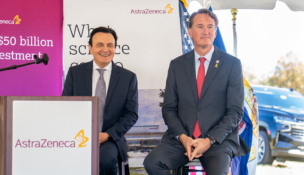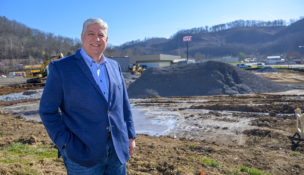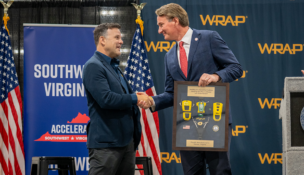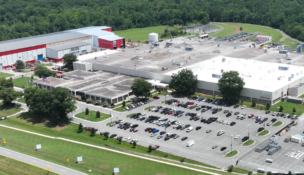A slow climb back
Companies still investing, but jobs remain scarce
Kate Andrews //February 28, 2021//
A slow climb back
Companies still investing, but jobs remain scarce
Kate Andrews //February 28, 2021//
After the pandemic hit in mid-March 2020, many industries hit pause on big decisions. But it didn’t take long for Virginia’s economic development departments to perk back up.
In May 2020, Microsoft Corp. announced it would expand its presence in Reston Town Center by launching a software development and research hub, creating 1,500 jobs. And in August 2020, T-Mobile USA Inc. said it would build a call center in Henrico County, creating 500 full-time jobs and increasing the center’s employment to 1,300 total jobs. Meanwhile, in Hampton Roads, federal contractors won numerous Department of Defense contracts to build ships and submarines last year, which will create more skilled jobs over the next decade.
In the Roanoke and New River valleys, the truck building industry continued to grow. Mack Trucks began producing medium-duty trucks for the first time since 2002, rolling out of the Valley TechPark last summer. In Pulaski County, at the Volvo Trucks North America plant, a new VNR Electric truck line is set to come online this year. And at Blackburg Industrial Park, Torc Robotics said in August 2020 it would create 350 software development jobs to support the company’s work to commercialize self-driving trucks for Daimler Trucks North American LLC, its owner.
In November 2020, voters in Bristol, Danville, Norfolk and Portsmouth overwhelmingly approved measures to bring casinos to their cities in coming years, a development that’s expected to energize investment in their areas and create more than 6,500 permanent jobs statewide.
Despite the pandemic, major businesses were still relocating to or expanding in Virginia in 2020, pledging new jobs at a time when a record number of residents were filing for unemployment benefits.
Virginia saw 438,000 workers temporarily furloughed or permanently laid off by April 2020, nearly erasing gains of 502,000 jobs made during the 2010s, according to Old Dominion University’s 2020 State of the Commonwealth report.
A December 2020 Moody’s Analytics employment forecast predicts that more populated areas should expect to return to pre-pandemic employment levels by late 2023. Rural and small metro regions may not recover until 2025.
In Arlington, work is in full swing on Amazon.com Inc.’s $2.5 billion East Coast HQ2 headquarters, which is set to be finished by 2030, but in revised plans released in February, the e-tailer appears to be adjusting to the idea of its planned 25,000-employee workforce using a hybrid office-remote work model.
The three 22-story office buildings will include open coworking space, as well as “The Helix,” a corkscrew-shaped 370,000-square-foot tower that will feature “alternative working environments” and ample greenery.
Outside Richmond, in western Henrico County, the developers of the city’s failed Navy Hill project are taking another stab at bringing an arena to the capital region. In December 2020, Henrico County officials announced their support for the proposed $2.3 billion, arena-anchored GreenCity development, a mixed-use “ecodistrict” that will feature environmentally sustainable buildings, including 2.3 million square feet of office and retail, 2,400 housing units and two hotels over 12 years. Parks and trails are also a major feature of the plan, which will be paid for with bonds if it receives approval as expected.
While most Virginia offices likely won’t resemble those planned for Amazon or GreenCity, developers and companies are all considering what work will look like in the future, especially for industries that have flexibility for remote working. Already, some businesses are taking advantage of the current environment by renewing commercial leases at lower rents and with more benefits, especially in Northern Virginia. Others, like State Farm in Charlottesville, are deciding to close some offices permanently.
That sense of uncertainty also extends to the kinds of jobs that will be available to Virginians, some of whom may have to retrain for new careers, experts say.
“I think one of our really big challenges is how do we get those people back into the workforce,” Thomas Barkin, president and CEO of the Richmond Federal Reserve Bank, said during a June 2020 panel held by Virginia Tech. “In many cases, they’ll be back in jobs they had before … but in many cases they won’t. There’s an opportunity to extend what’s been innovated in online learning into retraining.”
Charts:
- Virginia companies on the Fortune 1000
- Top 10 sectors by investment
- Top 10 sectors by employment
- Virginia’s rankings
- Top 15 projects by investment
- Top 15 projects by projected employment
- Port stats
C



















